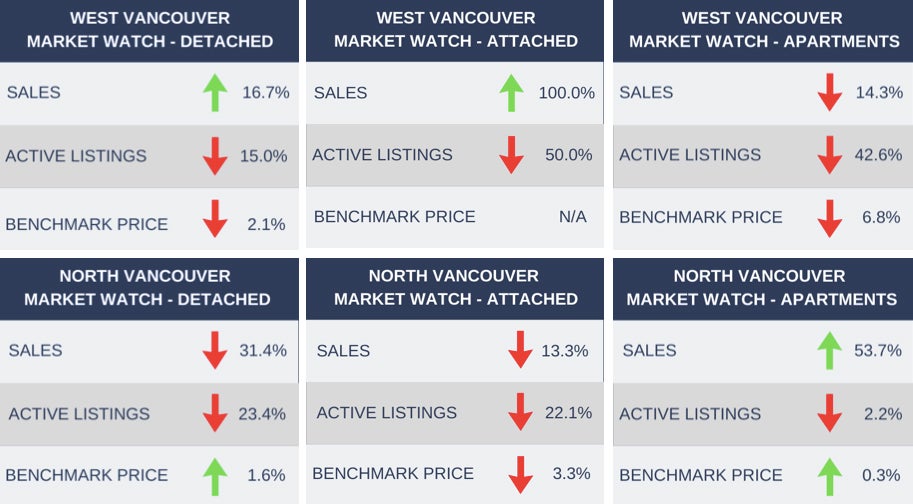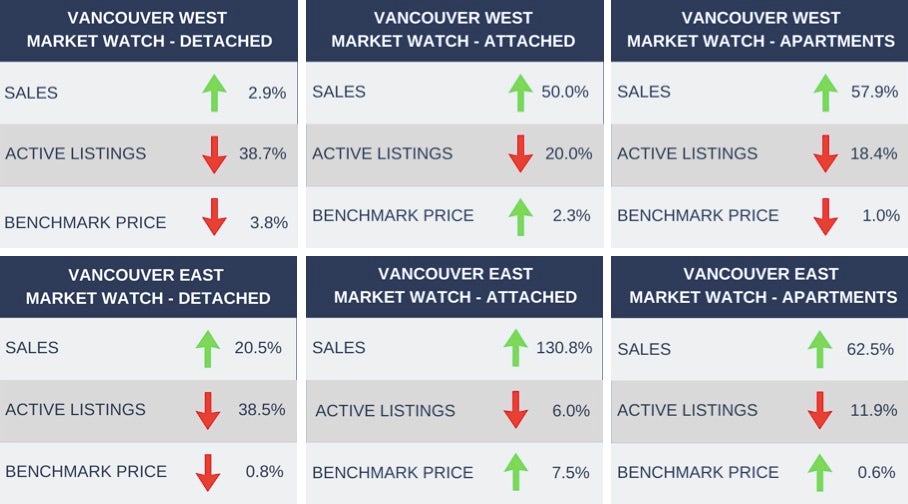IN THE FEBRUARY ISSUE:
• Vancouver real estate market — a time to look • 2020s: modular homes on the move
• Will coronavirus have an impact on real estate? • Demand exceeds supply in REBGV's January stats

Where does the real estate market go from here?
What now?
Following the stabilization of the real estate market, what’s next?
The Nexus Realty view is:
Following the stabilization of the real estate market, what’s next?
The Nexus Realty view is:
It’s time to see if the optimism that came with 2020 is as legitimate as it appears, time to see if it might be worth getting into the market before the crowd arrives.
 The market says it’s time.
The market says it’s time.
 The market says it’s time.
The market says it’s time. That’s a message we are forwarding to you.
As an aside, the philosophy at Nexus is to gather all the information we can about a listing so that our clients can make a collegial decision whether to buy, or sell, and what the price point is. When that time comes, we want a client who is confident and knowledgeable.
One of our 2019 clients (Brian Fox and his wife Char) put it this way: “When something came up we were really well-educated — I felt like a realtor!”
When we say the market is sending a message, it’s because we believe in the signals.
What are they?
There’s more optimism in the numbers. Sales are up. There’s a higher frequency of listings being sold. Properties are spending less time on the market. Selling prices are better. The market of houses priced at $1.5 million or less — and remember, you always have to think in terms of micro-markets — is a good market to be in right now.
This is the discussion we’re having with clients, and it’s quite a different discussion from just a few weeks ago.
Because of the January weather, the spring market is running a little behind but we’re starting to see some of that “spring” activity now. Opportunities are looking better. Now is the time, depending on your micro-market, to get out there and have a look, whether you’re buying or selling.
As an aside, the philosophy at Nexus is to gather all the information we can about a listing so that our clients can make a collegial decision whether to buy, or sell, and what the price point is. When that time comes, we want a client who is confident and knowledgeable.
One of our 2019 clients (Brian Fox and his wife Char) put it this way: “When something came up we were really well-educated — I felt like a realtor!”
When we say the market is sending a message, it’s because we believe in the signals.
What are they?
There’s more optimism in the numbers. Sales are up. There’s a higher frequency of listings being sold. Properties are spending less time on the market. Selling prices are better. The market of houses priced at $1.5 million or less — and remember, you always have to think in terms of micro-markets — is a good market to be in right now.
This is the discussion we’re having with clients, and it’s quite a different discussion from just a few weeks ago.
Because of the January weather, the spring market is running a little behind but we’re starting to see some of that “spring” activity now. Opportunities are looking better. Now is the time, depending on your micro-market, to get out there and have a look, whether you’re buying or selling.
Even property assessments are worthy of analysis. The new assessments (finalized last July) were released barely a month ago and already there are indications properties may sell for more than the assessed value, after a long time when realtors told sellers to expect them to sell below assessed value.
If you’ve been holding back either listing or looking, now is the time to do some exploring. At Nexus Realty, we don’t make such suggestions lightly. We don’t fluff up expectations. We are always reticent to say a price is higher than we genuinely think it is just to get new business. We always back up our convictions with solid sales information.
That’s a principle Nexus is dedicated to following, and it applies whether you’re a buyer or a seller.
So don’t wait.
That doesn’t mean don’t wait to sell or don’t wait to buy.
It means don’t wait to look.

A virus and its potential impact on real estate
Coronavirus.Two months ago, a word rarely heard. Today, a word rapidly used in daily conversations all over the world.
That's a fact.
It's now a word that comes with more questions than answers, some of them beyond the obvious health concerns of the virus that was first discovered in China.
We don't know what impact it will have on real estate in Vancouver, nor on the economy in general. Will it prompt Canadians with financial roots in China to move into Vancouver real estate in a more significant way?
All of it leads to one more question: What do you think?
News From Nexus is always interested in hearing the thoughts of its readers…and the Clarks are always interested in hearing and answering questions about what it means to clients and to markets.

The 2020s: the continuing growth of modular homes
 Building homes has been a traditional process. Contractors and sub-contractors built a home, or a community complex, on site. That’s been changing and the change is likely to be accelerated in the 2020s, a decade in which consumers are increasingly accustomed to ordering just about anything online — from clothing to furniture to cars. Are homes next? In part four of a series about the 2020s, News From Nexus looks at the evolution of the modular home.
Building homes has been a traditional process. Contractors and sub-contractors built a home, or a community complex, on site. That’s been changing and the change is likely to be accelerated in the 2020s, a decade in which consumers are increasingly accustomed to ordering just about anything online — from clothing to furniture to cars. Are homes next? In part four of a series about the 2020s, News From Nexus looks at the evolution of the modular home.Fourth in a series
The concept of moving home construction from “site” to “factory” is admittedly more advanced in the rest of the world than in North America, and now North America is catching up. There’s even an acronym that’s being used around the world — MMC.Modern Methods of Construction.
It might be described as building a computer-designed home in a factory and shipping the components to the site, where the home will be assembled. Or as a British executive in this new industry explained to the Financial Times last fall: “It’s not quite like Lego but it’s the same principle.”
 And in case you think that will apply only to homes on the lower end of the spectrum, well, it won't. All kinds of quality of homes, in all kinds of price ranges, are going to built in factories rather than on site. Don't be surprised if you see a $10-million home one day that was built in a factory.
And in case you think that will apply only to homes on the lower end of the spectrum, well, it won't. All kinds of quality of homes, in all kinds of price ranges, are going to built in factories rather than on site. Don't be surprised if you see a $10-million home one day that was built in a factory.There are sound reasons for this “new” way of building homes:
Efficiency — The modular home of the 2020s is energy efficient..more airtight, more watertight. There is much less waste and the standard of housing continues to improve. Imagine having a home where there’s little or no chance of wind whistling through small cracks in window/door frames, nor the likelihood of a “leaky roof.” Plus, there’s less noise pollution.
Affordability — Modular homes are cheaper to build. Factories are generally more efficient, and building the components there also addresses the ongoing and/or impending shortage of construction skills in the workplace. The intersection of labour shortages and unmet demand for housing is reportedly more prevalent on the West Coast.
Acceptability — Modular homes, especially when rectangular in shape, were once called “trailer park homes” but the quality of their construction and the changing demographics have changed all that. Now, companies are building those high-end modular homes. The origin of modular homes is foreign to homeowners in the 25-to-49  demographic, just like connecting affordability with practicality of today’s modular homes is foreign to their elders. Any stigma is gone.
demographic, just like connecting affordability with practicality of today’s modular homes is foreign to their elders. Any stigma is gone.
 demographic, just like connecting affordability with practicality of today’s modular homes is foreign to their elders. Any stigma is gone.
demographic, just like connecting affordability with practicality of today’s modular homes is foreign to their elders. Any stigma is gone. Why has it taken this long to become mainstream?
One theory is that conventional contractors have been reluctant to be the first to change and consequently the first to make the mistakes. However, the technology has stood the test of time, and improved.
How far will it go?
A European home ownership concept named BoKlok has delivered more than 10,000 “flat-pack” modular homes to mainland Europe and is expanding into the United Kingdom.
BoKlok is co-owned by IKEA.
One theory is that conventional contractors have been reluctant to be the first to change and consequently the first to make the mistakes. However, the technology has stood the test of time, and improved.
How far will it go?
A European home ownership concept named BoKlok has delivered more than 10,000 “flat-pack” modular homes to mainland Europe and is expanding into the United Kingdom.
BoKlok is co-owned by IKEA.
Next month: Housing as an investment in the 2020s



Feedback from property assessments story
The January issue of News From Nexus, the newsletter you receive the first week of every month, included a story about BC property assessments that were mailed to arrive right after New Year’s.
If nothing else, the story was appropriate.
In general, News From Nexus readers learned things they didn’t know, simply because it was something they hadn’t thought about when their property assessment arrived
The feedback we received was that the property assessment was:
• not a fixed number, but a dynamic one
• based on property research completed six months earlier
• not necessarily within two per cent of their property value
• a tool that could be used to help find the “real value” of their property but not a static number, rather a number to be combined with research and a selling strategy.
If it raises more questions in your mind, call Jennifer or Dale.
If nothing else, the story was appropriate.
In general, News From Nexus readers learned things they didn’t know, simply because it was something they hadn’t thought about when their property assessment arrived
The feedback we received was that the property assessment was:
• not a fixed number, but a dynamic one
• based on property research completed six months earlier
• not necessarily within two per cent of their property value
• a tool that could be used to help find the “real value” of their property but not a static number, rather a number to be combined with research and a selling strategy.
If it raises more questions in your mind, call Jennifer or Dale.

What our clients are saying...
“They gave us great advice about pricing, making sure we set a realistic asking price. And they REALLY listened. They handled the whole process with such good taste. Their attentiveness, and just listening, made us feel so confident about everything. The attention to every detail was super throughout. They did such a thorough job of market research, both when we sold and with our purchase.”— Brian and Char Fox, Burnaby

 REBGV: Fewer homes for sale than what's typical in January
REBGV: Fewer homes for sale than what's typical in January
At a bank investor’s day in Chile early this month, Scotiabank’s President and CEO touched on a real estate category that could get overlooked. The figures release at the end of January by the Real Estate Board of Greater Vancouver (REBGV) support Porter’s statement.
The market needs a boost in its inventory.
Last month’s listings were 13.7 per cent below the 10-year average for January and new listings were down 20.1 per cent from a year ago. Last month’s total inventory was almost the same as the previous month (December 2019). On the other hand, for new listings, there was a 143 per cent increase from December to January.
The need for more inventory is evident in all of the four neighbourhoods News From Nexus tracks each month (West Vancouver, North Vancouver, Vancouver West and Vancouver East). The figures for total listings in each of the three categories (detached, attached and apartments) was down in all neighbourhoods.
That’s 12-for-12.
Meanwhile, sales figures were up in 9 of the 12 categories, which adds to the imbalance of listings and sales. Only in North Vancouver “detached” and “attached” homes, and West Vancouver “apartments” were sales down compared to January 2019.
The sales-to-active listings ratio generally drives the prices, according to market analysts, who say downward pressure on home prices occurs when the ratio dips below 12 per cent for a sustained period, while home prices often experience upward pressure when it surpasses 20 per cent over several months.
For all property types in Greater Vancouver, the sales-to-active listings ratio for last month is 18.2 per cent. By property type, that ratio is 11.6 per cent for detached homes, 22.6 per cent for townhomes, and 23.9 per cent for apartments.
In a press release, the REBGV said:
“Looking at supply, we’re seeing fewer homes listed for sale than is typical for this time of year. As we approach the traditionally more active spring market, we’ll keep a close eye on supply to see if the number of homes being listed is keeping pace with demand.”




When a property is considered "sold" that's not the end of the story for Nexus Realty. As our clients know, we're there for them right to the end. That means closing the sale and making sure the last stage of the transaction is properly completed. In recent days, two Nexus Realty properties closed — their sales are now official — and in both cases there were some loose (and unforeseen) ends to tie up in the paperwork. That's why it's so important for realtors to take their clients right to the finish line.
Last month’s listings were 13.7 per cent below the 10-year average for January and new listings were down 20.1 per cent from a year ago. Last month’s total inventory was almost the same as the previous month (December 2019). On the other hand, for new listings, there was a 143 per cent increase from December to January.
The need for more inventory is evident in all of the four neighbourhoods News From Nexus tracks each month (West Vancouver, North Vancouver, Vancouver West and Vancouver East). The figures for total listings in each of the three categories (detached, attached and apartments) was down in all neighbourhoods.
That’s 12-for-12.
Meanwhile, sales figures were up in 9 of the 12 categories, which adds to the imbalance of listings and sales. Only in North Vancouver “detached” and “attached” homes, and West Vancouver “apartments” were sales down compared to January 2019.
The sales-to-active listings ratio generally drives the prices, according to market analysts, who say downward pressure on home prices occurs when the ratio dips below 12 per cent for a sustained period, while home prices often experience upward pressure when it surpasses 20 per cent over several months.
For all property types in Greater Vancouver, the sales-to-active listings ratio for last month is 18.2 per cent. By property type, that ratio is 11.6 per cent for detached homes, 22.6 per cent for townhomes, and 23.9 per cent for apartments.
In a press release, the REBGV said:
“Looking at supply, we’re seeing fewer homes listed for sale than is typical for this time of year. As we approach the traditionally more active spring market, we’ll keep a close eye on supply to see if the number of homes being listed is keeping pace with demand.”
By next month’s report, the spring figures should be starting to take shape.

Real Estate Monthly Statistics
The following statistics for West Vancouver, North Vancouver, Vancouver West and Vancouver East
compare January 2020 to January 2019 (note: sales refers to number of sales, not to sale prices).


Benchmark Price: Estimated sale price of a benchmark property. Benchmarks represent a typical
property within each market. To see more information on local stats, please Click Here.

